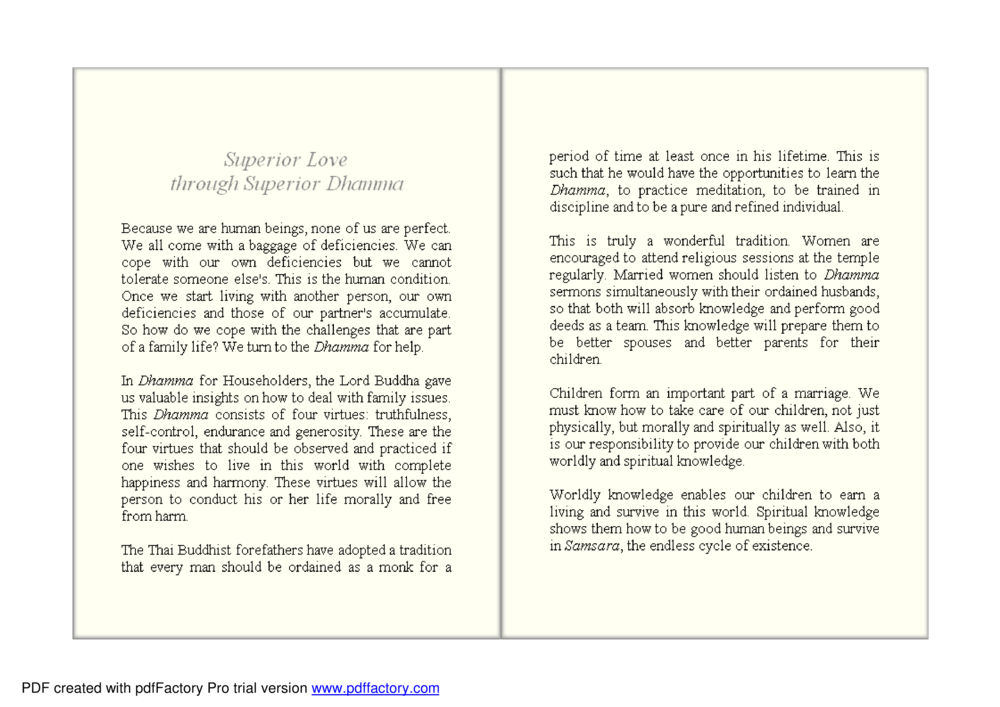Superior Love through Superior Dhamma : หน้า 20/62
Lovely Love : หน้า 20/62 Explore the insights from Dhamma for Householders on achieving harmony in family life through truthfulness, self-control, endurance, and generosity.
1 ครั้ง

สรุปเนื้อหา
This text discusses the challenges of living with a partner and how the Dhamma provides guidance for a harmonious family life. It highlights the four virtues: truthfulness, self-control, endurance, and generosity as essential for happiness. The tradition of ordaining men as monks is mentioned as a way to learn Dhamma and develop discipline, while women are encouraged to participate in religious activities alongside their husbands. The text emphasizes the dual responsibility of parents to provide both worldly and spiritual education for their children, vital for their survival in the material world and the spiritual journey.
หัวข้อประเด็น
- Importance of Dhamma in family life
- Four virtues for happiness
- Tradition of ordaining monks
- Role of women in religious education
- Parenting and moral responsibility






























































